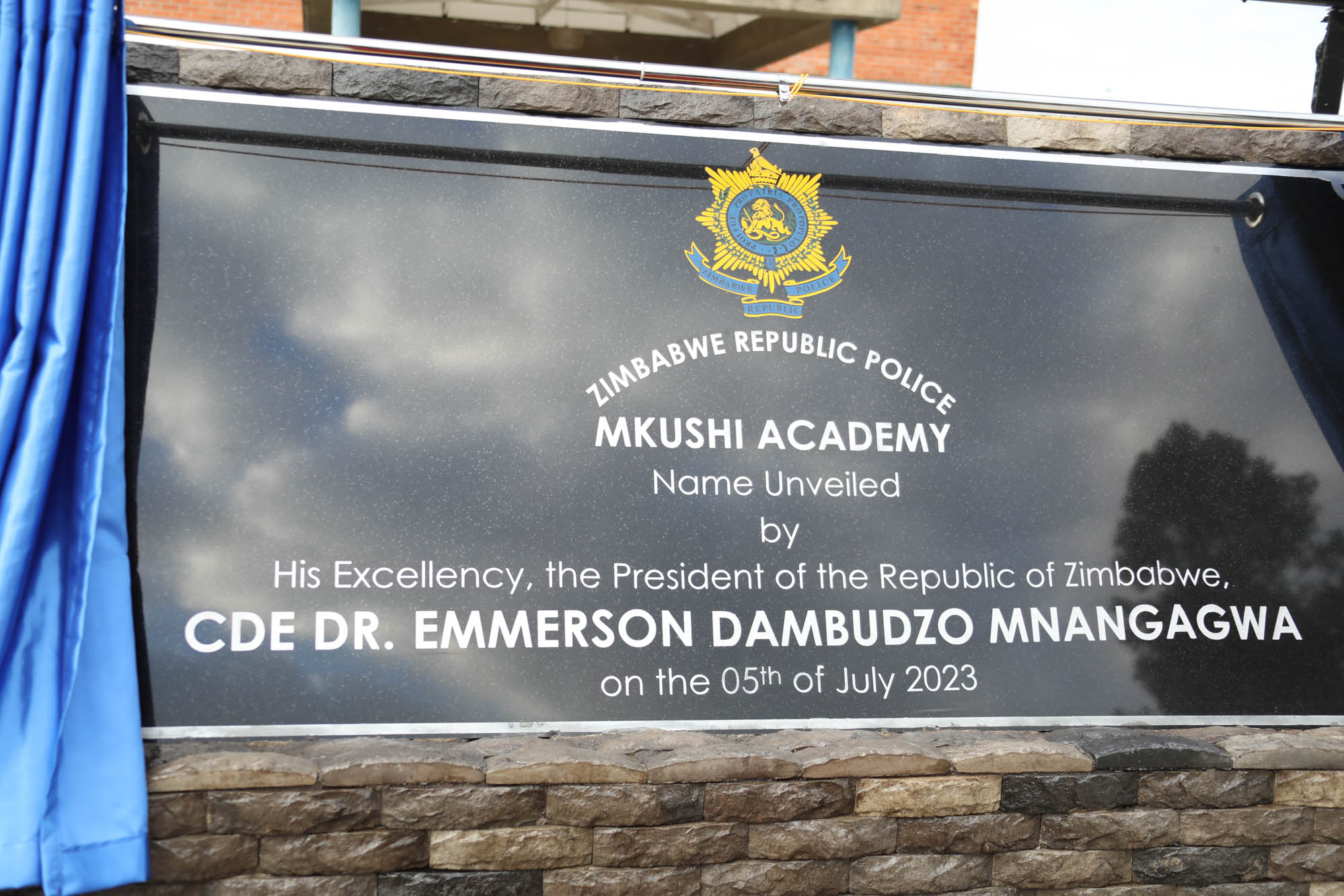Simiso Mlevu
“When I think of the bombing, a horror film replays in my head, but this gives me power, strength and affirmation that I can sail through adversity. I am grateful for my station in life and feel I survived to serve my country. I may fail, but I put maximum effort and that gives me satisfaction,” says Deputy Minister of Home Affairs Ruth Mabhoyi whose Chimurenga name was Cde Jaqueline Hondo. Mabhoyi survived the bombing at Mkushi Girls’ Camp in 1978, that left unfading images that have lasted to this day.
Mkushi was reduced to a shell after a siege by Rhodesian soldiers, which lasted close to 10 hours.
On the fateful day, Mabhoyi recalls waking up for the routine parade and roll call before breakfast, which consisted of milk only. She says she recused herself from going to the kitchen because she was fed up with drinking milk every morning.
“On the fateful day, we woke up and had our daily parade and roll call. Thereafter we were dismissed to go for breakfast. We had run out of food at the camp and had been surviving on milk for days. I did not go for breakfast with other comrades in my section.
“It seemed a normal day like any other, but after breakfast and all the other activities at the camp, at around 10 am, the bell rang signalling that we should gather at the parade square. We gathered for the parade and we were told that Freedom Camp had been attacked, although details about the attack were still sketchy due to communication challenges. The commander then suggested that we go to our positions and wait for further instructions.
“As we were descending into a valley within the camp, a colleague said she had heard a suspicious sound. Before she could finish her sentence, menacing helicopters were hovering above us. We were the first targets, but Lady Luck was on our side. The missiles missed us, and we found ourselves covered in a thick cloud of dust.”
Mabhoyi and other comrades from her section, who had missed death in the blink of an eye, crouched through the valley and lay there the whole day. They only started moving through the bushes to the gathering point during the night. The next morning, there was a proposal to send a reconnaissance team to Mkushi Camp.
Mabhoyi recalls how defying a military command, which was usually akin to mutiny, saved her life from the jaws of death again.
Having survived the attack at Mkushi Camp and travelled to the designated meeting point, which was a Zambian police station, Mabhoyi was selected together with a few other comrades to trek back to the camp for reconnaissance, but she refused to go on the assignment.
“Ordinarily, I would have been punished for defying the instruction by a commander. I think they understood that I was truamatised and left me to be,” she said.
The selected group led by Cde Ntatshana (now late), two other girls who had survived the attack, two Zambian ladies and two male Zambian police officers set off to inspect the extent of the damage.
“Sadly, on arrival within the environs of the camp, our Zambian colleagues and the two survivors were killed while Cde Ntatshana was captured.
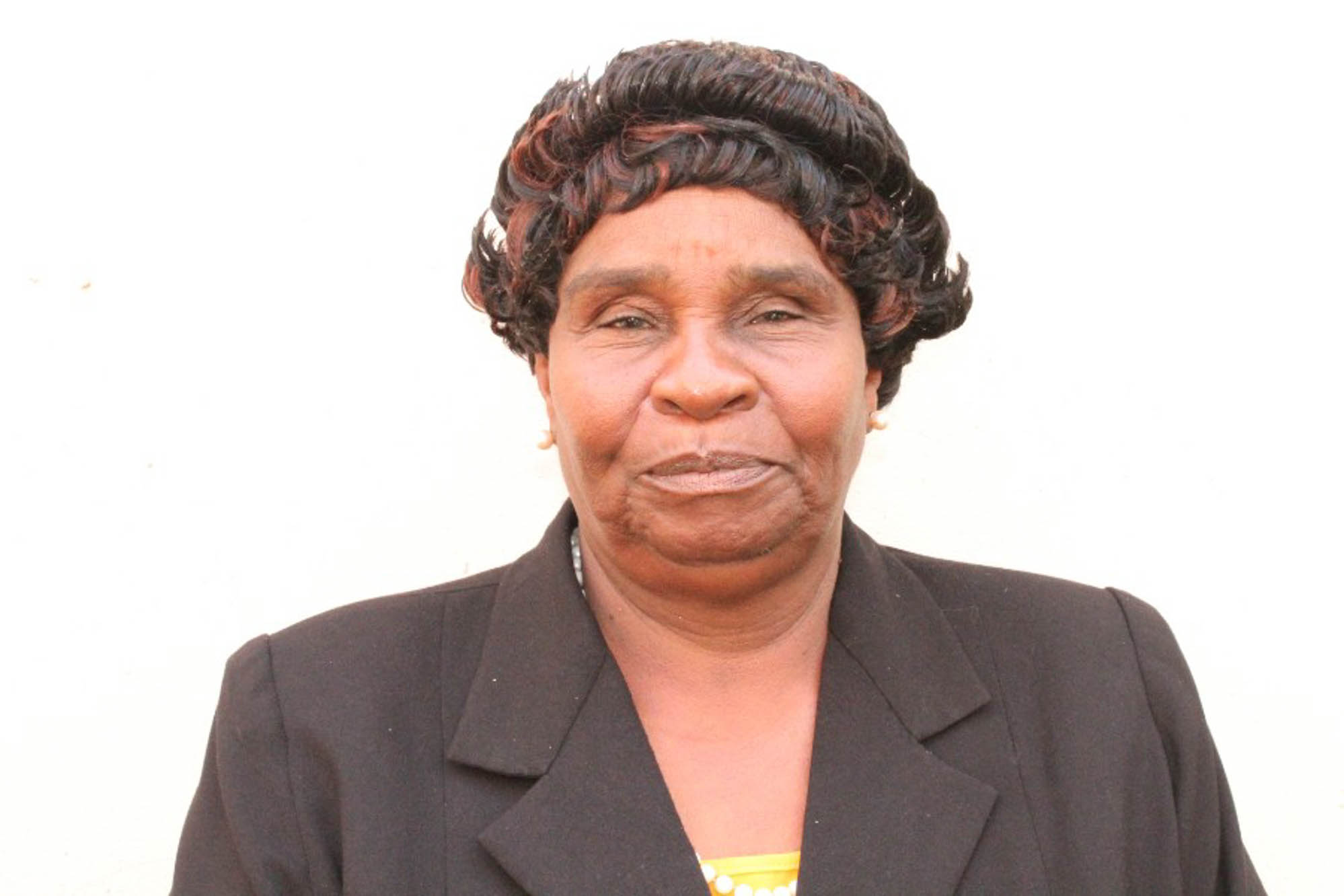
Ruth Mabhoyi, a survivor of Mkushi Girls’ Camp bombing.
“For the whole day, we curiously waited for feedback from Cde Ntatshana’s group, but to no avail. The following morning, at around 10 am, we received the sad news of the death of some and the capture of Cde Ntatshana.
“Upon hearing the sad news, we ran away from the camp because we thought Cde Ntatshana was going to be tortured to reveal our location. We regrouped 10 kilometres away from Rusemfu. This is where we were eventually found and rescued by the late [Zipra commanders] Dumiso Dabengwa and Lookout Masuku who had been sent by ubaba uJoshua Mqabuko Nkomo,” she said.
Memorialisation of the liberation struggle
The harrowing story of Deputy Minister Mabhoyi’s survival is a tale of selfless commitment, dedication and endurance by a girl child in pursuit of freedom. Unlike her, who survived to tell the tale, over 1,000 girls perished at Mkushi Girls’ Camp and their remains are still lying there.
For close to four decades, their role in the liberation history of the country remained a subject for oral narrations at the National Heroes’ Acre and during Heroes’ Day celebrations. However, the Second Republic has embarked on a commendable mission to preserve historical memory through memorialising the liberation struggle by renaming several institutions after the country’s heroes.
Richard Crownshaw, in his book, Writing the History of Memory, defines memorialisation and an act of remembrance: the commemoration of historical losses as opposed to the celebration of historical events. He submits that memorialisation imposes sites of memory on sites of historical activities.
The memoralisation of the liberation struggle has been one of the Second Republic’s flagship programmes under the leadership of President Mnangagwa who has taken a deliberate move to celebrate the contribution of the sons and daughters of the soil by etching their names on strategic national security institutions, effectively erasing the colonial memory which celebrated colonialism by imposing itself in the memory of Zimbabweans.
As outlined in the Constitution of Zimbabwe, Section 3 (1), Zimbabwe is founded on the primacy of respecting the liberation struggle.
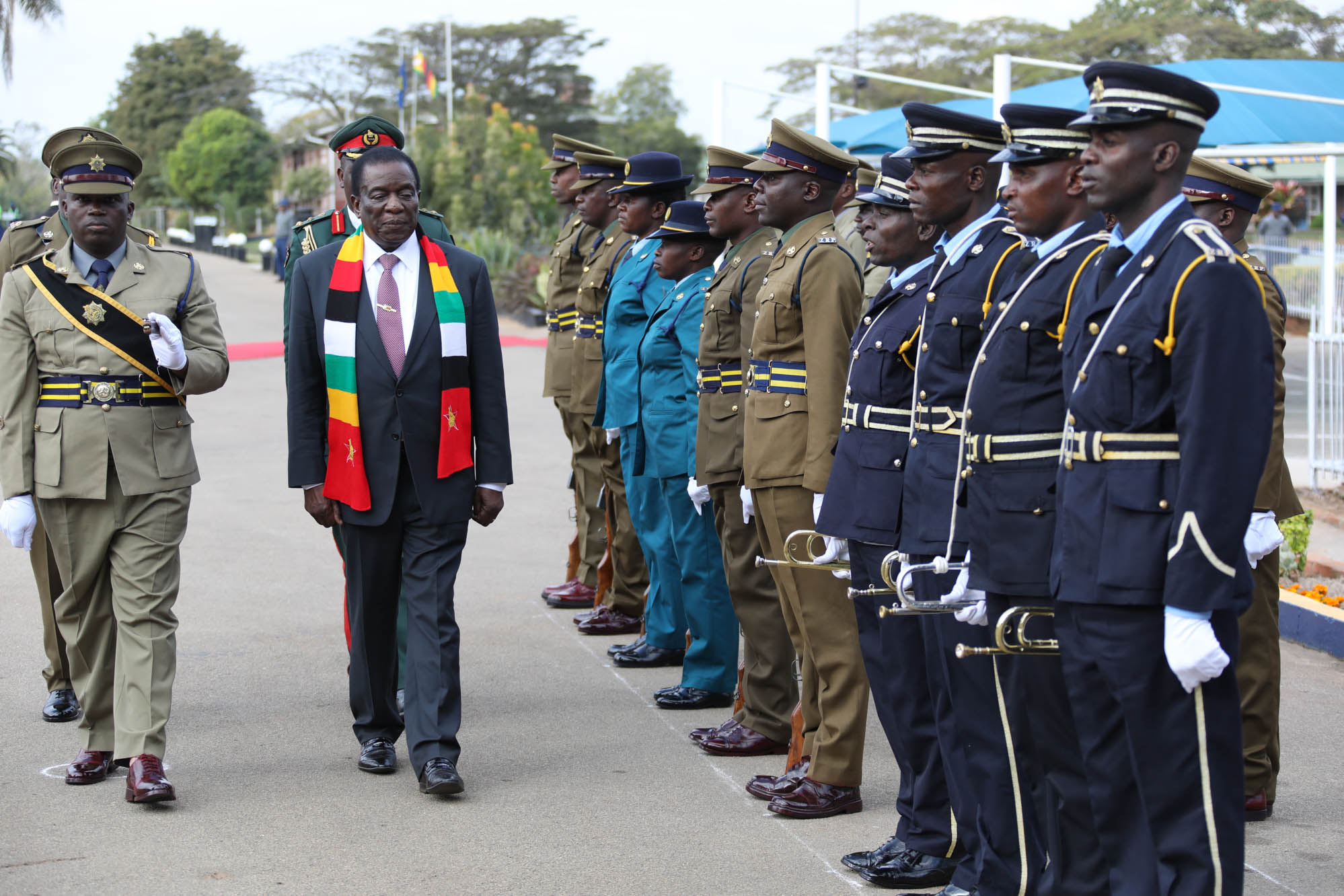
On 5 July 2023, President Mnangagwa told a gathering at ZRP Mkushi Academy, formally Morris Depot, in Harare, of his commitment to uphold the Constitution.
Said President Mnangagwa: “Since 2017, the Zanu-PF government took a deliberate and bold decision to rename our key national institutions and facilities in recognition of our country’s rich liberation war heritage.
“This is also in keeping with the spirit and letter of Section 23, Sub-section (1) of our national Constitution which exhorts the State and every institution of government at every level, to accord due respect, honour, and recognition to the veterans of the liberation struggle.”
Honouring The Girls
Addressing delegates during the commissioning of the vehicles for the Zimbabwe Republic Police and the unveiling of the Police Academy’s new name, President Mnangagwa said the gesture is an “honour to the many sons and daughters of our motherland, Zimbabwe, who sacrificed life and limb under the brutal racist Rhodesian regime, to bring about the independence, freedom, democracy, and stability we are enjoying today”.
“. . . we honour all those who perished, through this renaming ceremony, may their dear souls continue to rest in eternal peace,” said President Mnangagwa as he paid tribute to the female heroes lying in Mkushi, Zambia.
For Mabhoyi, the renaming ceremony was as emotional as the bombing itself.
“This is a big honour. I am sure even the spirits of those who are sleeping in Zambia are celebrating. They see what the government has done for them. We did not know that one day we will be honoured. The Second Republic has done well for us. I feel proud to have given up the comfort of my parents’ home and contributed to the liberation of this country.
“It is a mystery that I survived the bombing and lived to witness the renaming ceremony. When Morris Depot Academy was renamed, I felt weak, I became emotional and felt deep pain. But at the same time, it felt very good. The girl child’s contribution to the struggle has been recognised,” she said.
Rosemary Mathe-Maphala, whose Chimurenga name was Cde Senzeni Mkhonto, said the participation of a girl child in the liberation project has always been narrativised and, therefore, the extent of their involvement was bound to be challenged in the future.
“This a very good and appreciated move. This is a great honour for our history. It is a great recognition of our contribution and the struggles we went through as young girls. The name Mkushi will remain in history forever. Future generations will continue to read and know that women contributed to the independence of this country,” Maphala said.
Why Mkushi?
The renaming of Morris Depot Academy to ZRP Mkushi Academy symbolised, in an emphatic way, a break away from colonial history and is a way of memorialising the country’s liberation war history.
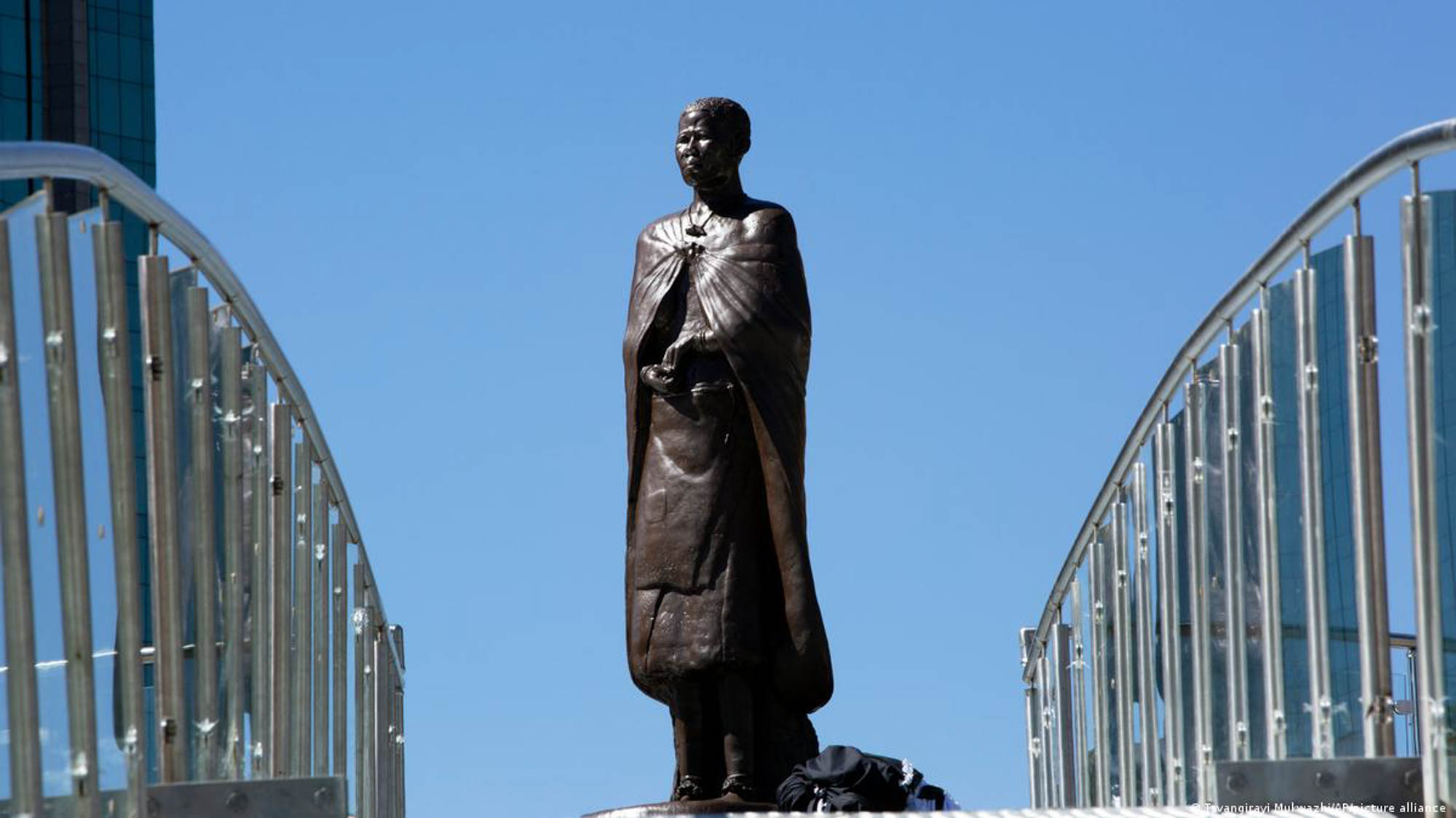
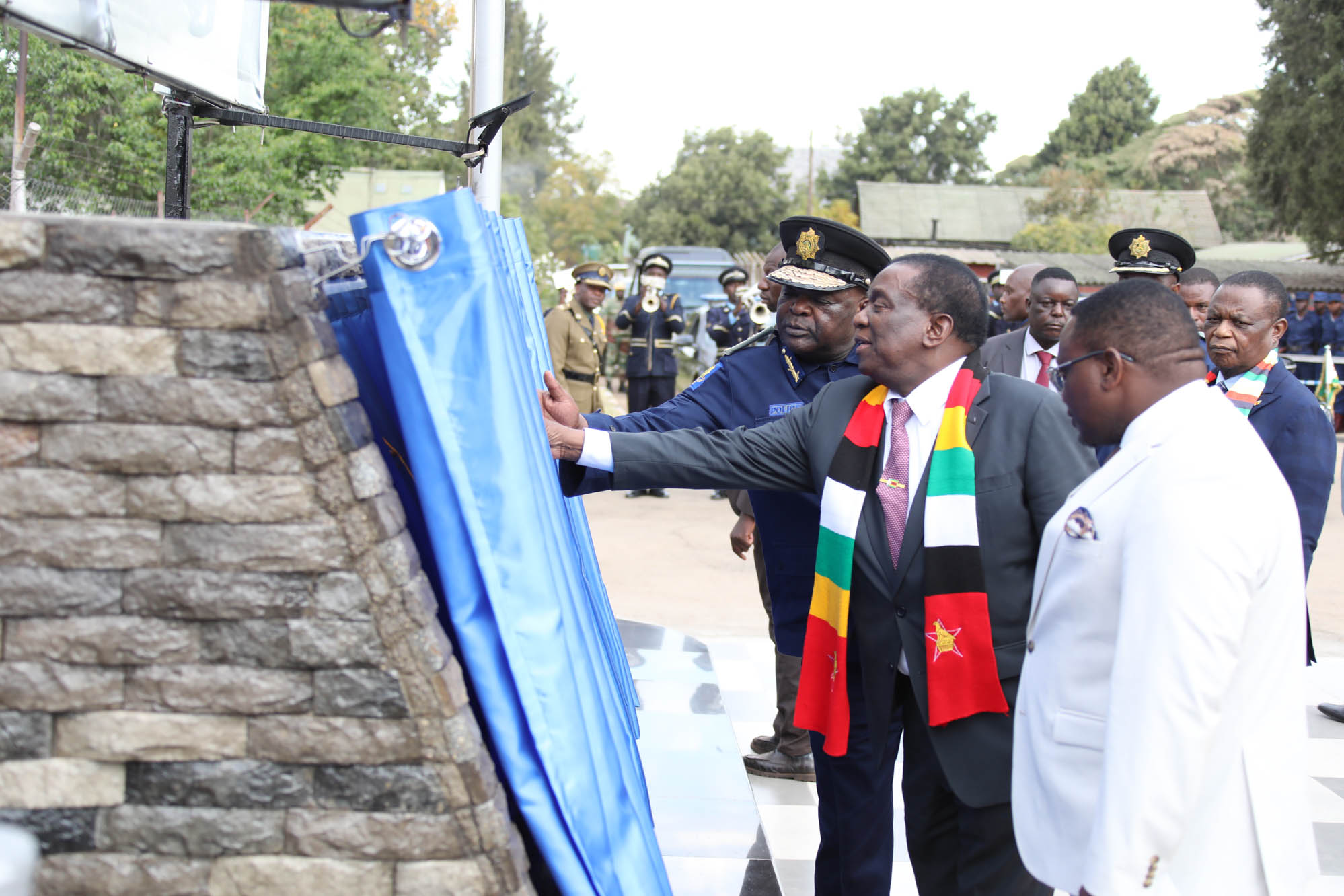
Constantino Chiwenga and Home Affairs and Cultural Heritage Minister Kazembe Kazembe look on.
Although the young girls were overwhelmed, the head of the Rhodesian Central Intelligence Organisation, Ken Flower, in one of his statements said: “They gave a fair account of themselves fighting back like soldiers and not women.”
With such heroic fighting, President Mnangagwa said the renaming of Morris Depot to ZRP Mkushi Academy was due recognition for the contribution made by women towards the liberation of Zimbabwe, adding that under his administration, “women continue to be accorded the due recognition across all levels of society”.
“The unveiling of the new name for the Police Academy, ZRP Mkushi Academy, epitomises aspects of the indelible history of our nation. The colonial settler regime, in its typical merchant of death obsession, undertook a ferocious and heartless attack on liberation fighters and chose to decimate female guerrillas at Mkushi Girls’ Training Camp in Zambia,” said President Mnangagwa.
Who was Morris?
The Rhodesian government had immortalised the memory of its heroes as a sign of conquest and Morris Depot has been one such enduring reminder of the colonial history of this country.
Brigadier John Sydney Morris was a member of the British South Africa Police (BSAP). He became the longest-serving Commissioner of the BSAP, leading for 12 years and two months, from February 1933 to April 1945. Born in 1890 in Didsbury, Lancashire, in Britain, Morris joined the BSA Police in October 1909 and served mainly in Mashonaland parts of the country. He was commissioned in April 1914 before transferring to the Criminal Investigations Department (CID) in 1915.
As a CID officer, he operated in Bulawayo and Harare (then Salisbury). He was promoted to the rank of superintendent in 1926 and became Assistant Commissioner to Stokes in November 1929, with the rank of Major. In the lead-up to the Second World War, Morris was elevated to a Brigadier and appointed Commander of the Southern Rhodesian Forces. He died in the capital on 18 November 1961.
Decolonising National Memory
Scholars argue that history and memory mutually condition each other and are transferred through oral tradition and cultural means such as statues, monuments, and memorials.
The Second Republic is taking practical steps to transfer knowledge to the citizens. Diverting from his official speech as he addressed the delegates, President Mnangagwa said the renaming of Morris Depot Academy to ZRP Mkushi Academy exorcised the spirit of the long-serving Rhodesian senior police officer and erased his name from national memory.

“We are also witnessing the official renaming of the police academy from Morris Depot. I understand this Morris guy was commissioner of the colonial regime from 1933 to 1945. Akagara (He was in office for a long time). Anyway, we have chased the name away. Both the name and his spirit have been removed,” said President Mnangagwa.
President Mnangagwa said “the massacre at Mkushi Camp, of these unarmed Zapu female cadres on 19 October 1978, along with similar attacks at Freedom Camp on the same day, Nyadzonya Massacre in August 1976 and Chimoio Massacre in November 1977 stand in history as a reminder of the brutality of the colonial regime. Today, as we honour all those who perished, through this renaming ceremony, may their dear souls continue to rest in eternal peace.”
President Mnangagwa recognises the centrality of the liberation heritage to the development of Zimbabwe as a nation and has reproduced the Mkushi war site for posterity and to capture the fading memory of occasions that constitute nationalist consciousness.
A series of facilities throughout the country’s provinces have been renamed to reflect the country’s true history. King George VI Barracks were renamed to Josiah Magama Tongogara Barracks. Headquarters 3 Infantry Brigade in Mutare were renamed after the late Cde Herbert Wiltshire Chitepo. The Flyde Air Base was named after the late Cde Jason Ziyaphapha Moyo. Thornhill Air Base was named after Josiah Tungamirai, who was the Air Force of Zimbabwe’s first black Air Marshal. The Zimbabwe Military Academy cantonment in Gweru was renamed Solomon Mujuru Barracks while 4 Brigade Barracks had its name changed to Gava Musungwa Zvinavashe Barracks.
By renaming Brady Barracks in Bulawayo to Mzilikazi Barracks, President Mnangagwa effectively captured the complexity of the historical process and social change so that nation can reflect and learn. It was the great King Mzilikazi who founded the Ndebele kingdom after fleeing from Tshaka’s KwaZulu.
President Mnangagwa emphasised that these names must help keep our liberation war history alive, for posterity, as homage to our selfless liberators.
On 11 July 2023, the Second Republic also approved the erection of statues of the late founding President Robert Mugabe, Dr Joshua Nkomo and Dr Tichafa Samuel Parirenyatwa in honour and recognition of their contribution to the liberation of Zimbabwe.
“The nation is advised that in recognition of the roles played by Cde Robert Gabriel Mugabe and Dr Joshua Mqabuko Nyongolo Nkomo, who selflessly dedicated their lives for the liberation of Zimbabwe, Cabinet approved the erection of statues in Harare.
“The statue of Cde R. G. Mugabe will be erected at the Robert Gabriel Mugabe International Airport, while the second Dr J. M. N. Nkomo statue will be erected at the trumpet interchange at the intersection of Joshua Mqabuko Nyongolo Nkomo and Glenara roads.
“In honour of the late nationalist and first black medical doctor and physician and first Vice President of the Zimbabwe African People’s Union (ZAPU), the late Dr Tichafa Samuel Parirenyatwa, a statue will be erected at an appropriate entrance to the Parirenyatwa Group of Hospitals.
“Heany Junction, the place where his body was dumped having been killed at Shangani, will also be renamed after him and a granite pedestal erected to signify and memorialise the site,” read the Cabinet matrix.
Beyond the Second Chimurenga
The history of Zimbabwe’s resistance to European hegemony in the mid- to late-19th century is, however, not complete without the exploits of the warrior-woman Nehanda Nyakasikana.
In the Journal of Law and Social Sciences, Volume 4, Issue 3 (2020), Niya Mtombeni and Vimbai Matiza argue that documentation and memorialisation of the first battles against colonialism is not sufficiently documented by the Zimbabwean government. Some battle sites have been documented and memorialised by the colonial regime.
Professor Terrance Ranger observes that the First Chimurenga was dark history which was neither documented nor memorialised, but it was the first confrontation which the indigenous people had with the colonial settlers.
Typical of the Second Republic’s stance of preserving memories on the struggle for independence by engraving it in the hearts and minds of the citizens, on Africa Day 2021, President Mnangagwa unveiled Mbuya Nehanda’s statue
He told the gathering that “the unveiling of Mbuya Nehanda Nyakasikana is the manifestation of the bold commitment to reconstruct our country’s rich past and history. It equally stands as a symbol of unity, identity and inspiration to present and future generations on the importance of unflinching patriotism, loyalty, fortitude and determination to defend and work for our beloved country against any odds”.
